Nigerian Studio Contra blends contemporary culture with local craftmanship
Nigerian Studio Contra is part of our series of profiles of architects, spatial designers and builders shaping West Africa's architectural future
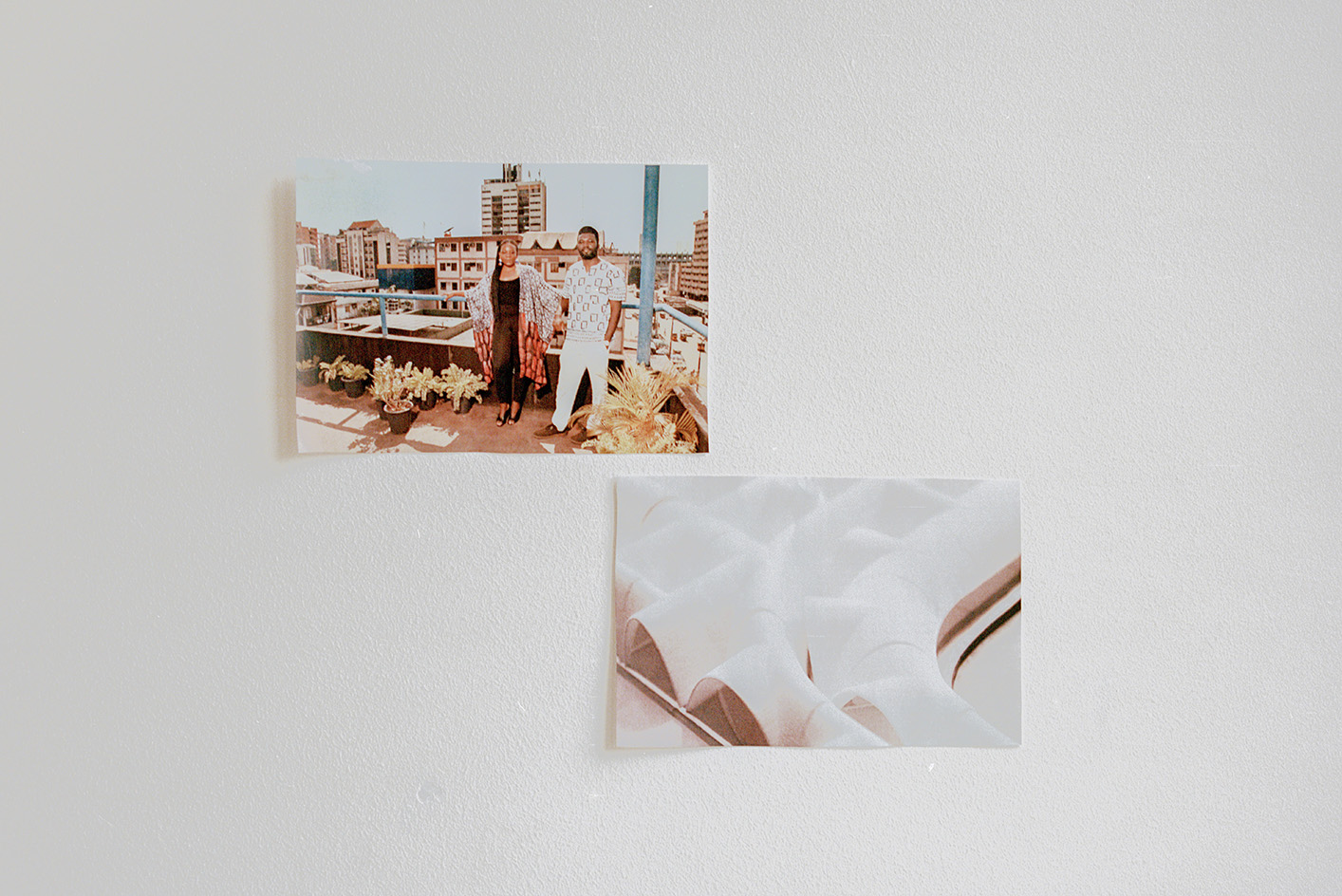
Olayinka Dosekun-Adjei and Jeffrey Adjei were motivated to establish the Nigerian Studio Contra, their joint practice, in 2016, inspired by a mutual desire to create innovative architecture for African cities. The married couple first met as employees at Sheppard Robson, one of the UK’s most established architecture firms. Dosekun-Adjei, who was raised in Nigeria, and Adjei, a Ghanaian, decided to set up their own studio in Lagos. Drawn to its energy and commercial dynamism, they saw the city as the perfect platform to effect social change and express cultural ideas through design.
Today, the 15-member architecture, interior and urban design practice – part of the Wallpaper* Architects’ Directory 2022 – is in the process of executing a spate of cultural commissions in Kwara, a state in the western region of Nigeria. These include the Ilorin Museum and Garden scheme – a modern update of the old and dilapidated Kwara Museum of Ilorin. The new 35,000 sq ft space will house classical Nigerian sculptures, while the derelict colonial building is to be redeveloped into a café and gift shop.
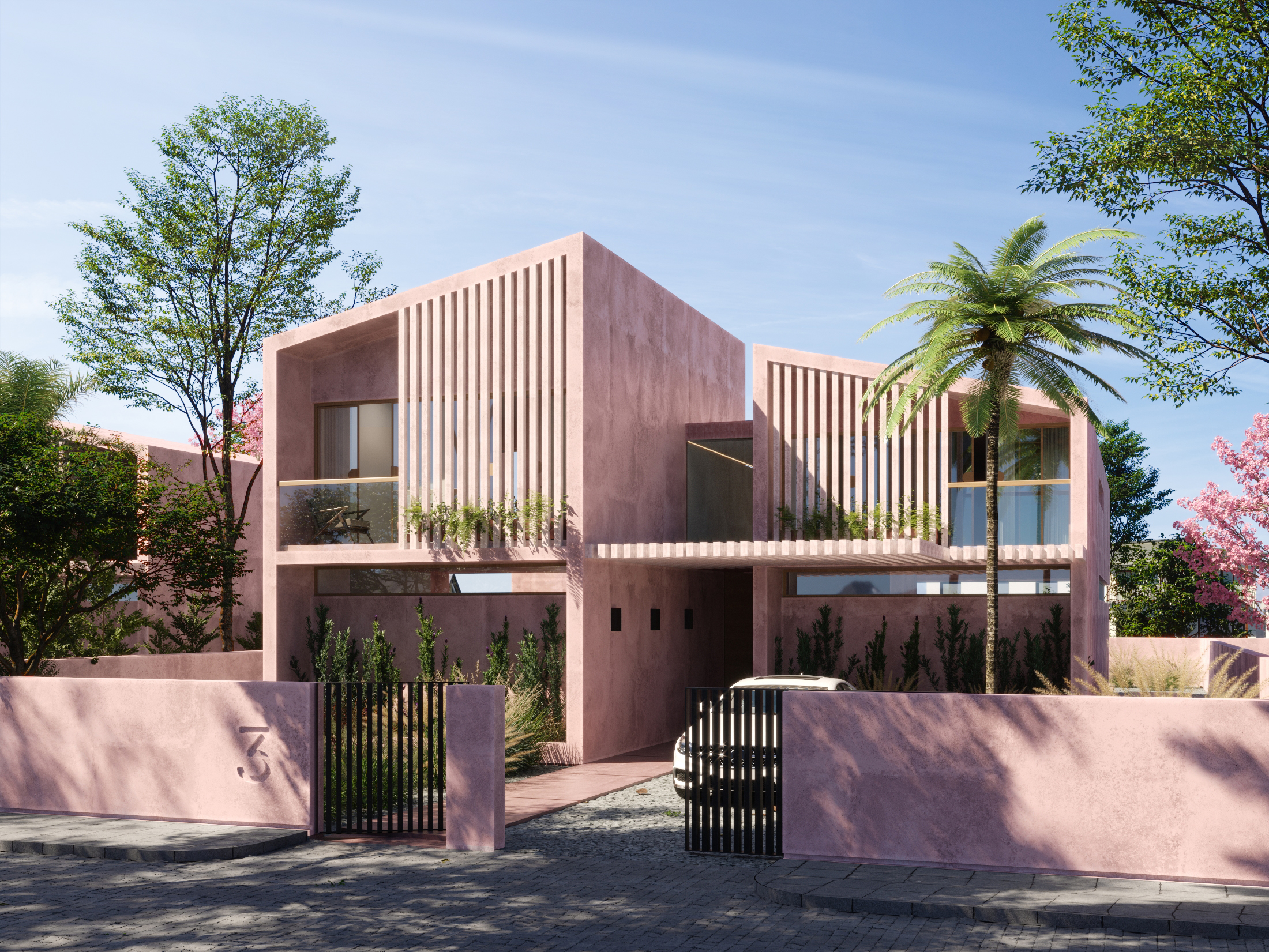
Studio Contra's Red Clay Villa design
West African studios: Studio Contra
Meanwhile, a 24,000 sq ft Institute of Contemporary African Art & Film in Kwara is in the works, with completion expected in early 2023. A third project in the region – Sugar Factory Film Studios – will see a decades-old disused sugar factory repurposed into film studios. This scheme exemplifies their approach to adaptive reuse – an attractive proposition for the architects considering its lower carbon approach to building.
‘We’re taking something that’s been undervalued, and we’re adding value to it. We're transforming it and offering it back to the city. I think it's a more sustainable approach,’ Dosekun-Adjei says.
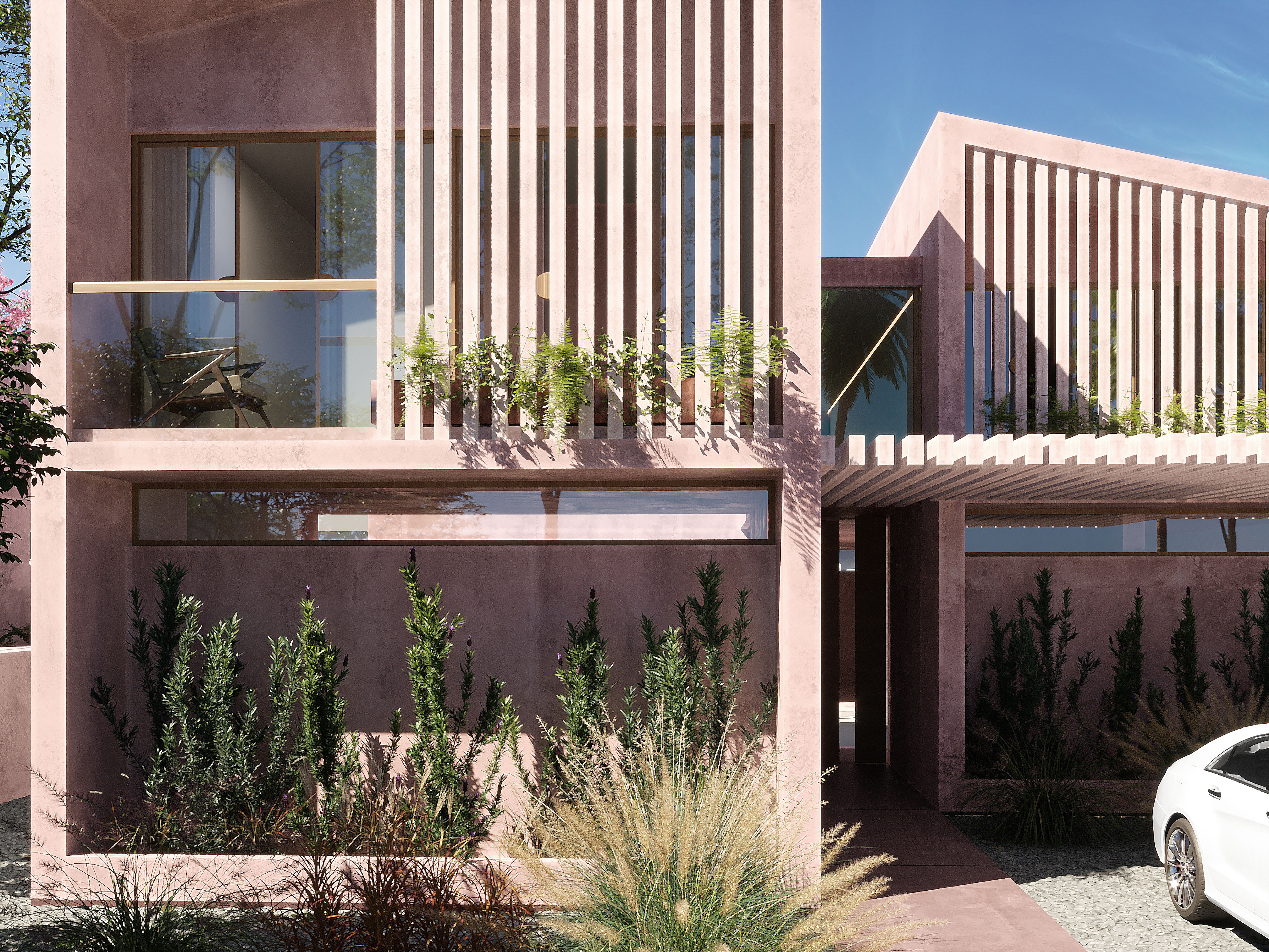
An additional renovation project in Lagos – a city filled with underutilised building stock, according to the pair – involves the redesign of the 9,500 sq ft Centre of Contemporary Art from façade to interior.
The architects are particularly passionate about cultural projects due to the impact they leave on society and the cities they occupy. However, Adjei explains that these commissions, often government-funded, can be challenging to navigate for fledgling firms.
‘It's a very long, drawn-out process, so you can easily bankrupt your company if you want to stay within that sector alone. We find that we have to take on a variety of residential projects to keep us going and cover our overheads,’ Adjei explains.
Wallpaper* Newsletter
Receive our daily digest of inspiration, escapism and design stories from around the world direct to your inbox.
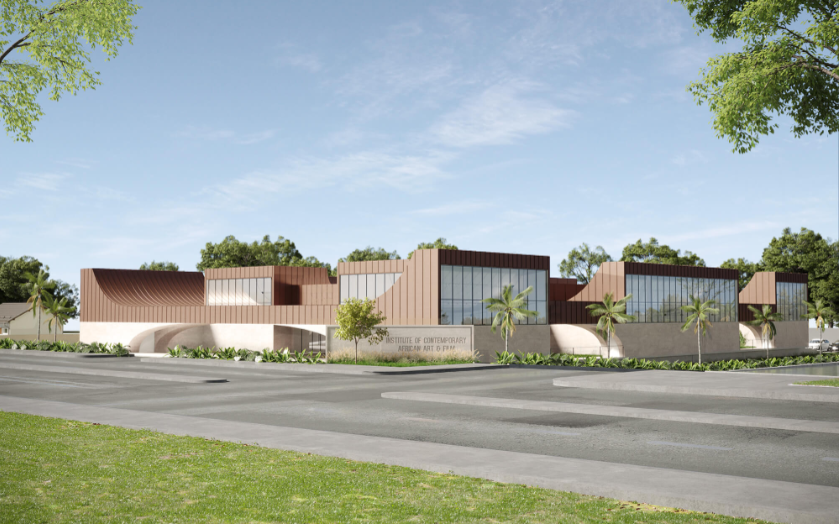
Institute of Contemporary African Art & Film
Private houses, such as the Quartey Residence in Accra, are being constructed with locally produced half-fired clay bricks – a process less energy intensive than the use of commonly used concrete. Such projects have inspired the partners to hire an architect to specifically investigate domestic building materials and craftsmanship that can be incorporated into their schemes.
Although the architects say that they are yet to develop a distinct design language, their work explores ways of synthesising the demands of the contemporary setting and expressions of modernity with a sense of their traditional African culture and history. The arched motifs in their design of the Institute of Contemporary African Art & Film is evidence of this, referencing Islamic building traditions that are typical in central and northern Nigeria. Dosekun-Adjei says that this speaks to their search for a language for contemporary African architecture ‘that sits comfortably in the present, but also has roots in the past’.
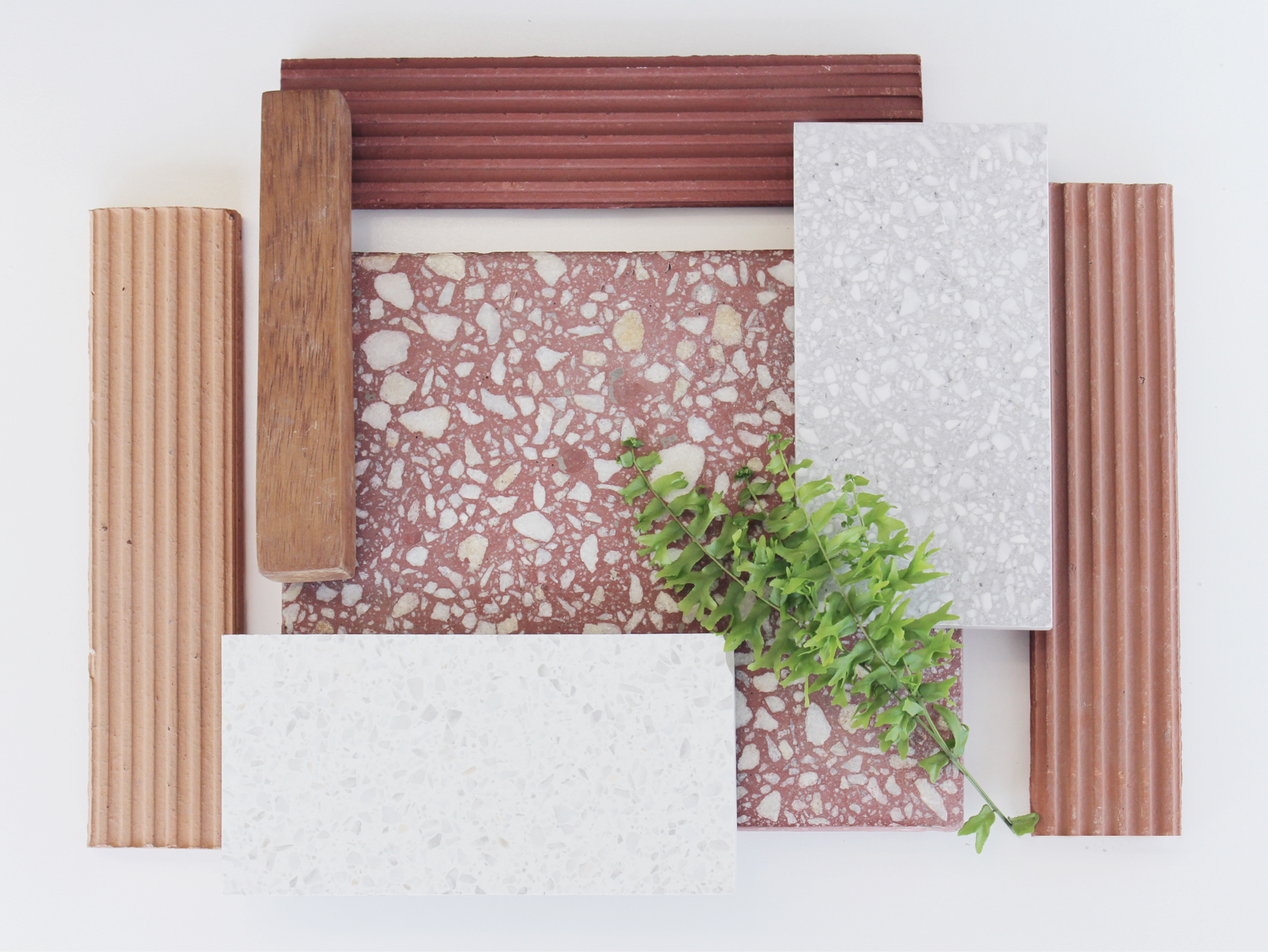
One of Studio Contra's material moodboards
West African studios: the series
From Senegal to Nigeria, and from Niger to the Ivory Coast, West Africa is vast and brimming with potential. A powerful mix of peoples and cultures, and in some nations, exponential demographic and economic growth, makes this part of the world a locus of change. The result? A dynamic new generation of studios that operate in the architecture realm and push the boundaries of their field to a promising future. Architects, spatial designers and builders converge here to create a unique, rich melting pot of fresh thinking and innovation that will no doubt reshape the way we think about architecture globally.
Our series on West African studios continues on Wallpaper.com in the coming days and is featured in January 2023 Wallpaper*.
A version of this story appears in January 2023 Wallpaper*, The Future Issue, available now in print, on the Wallpaper* app on Apple iOS, and to subscribers of Apple News +. Subscribe to Wallpaper* today
Ijeoma Ndukwe is an award-winning writer and journalist based in London. Her work has been published and broadcast on international platforms including the BBC, Al Jazeera and The New York Times.
-
 Put these emerging artists on your radar
Put these emerging artists on your radarThis crop of six new talents is poised to shake up the art world. Get to know them now
By Tianna Williams
-
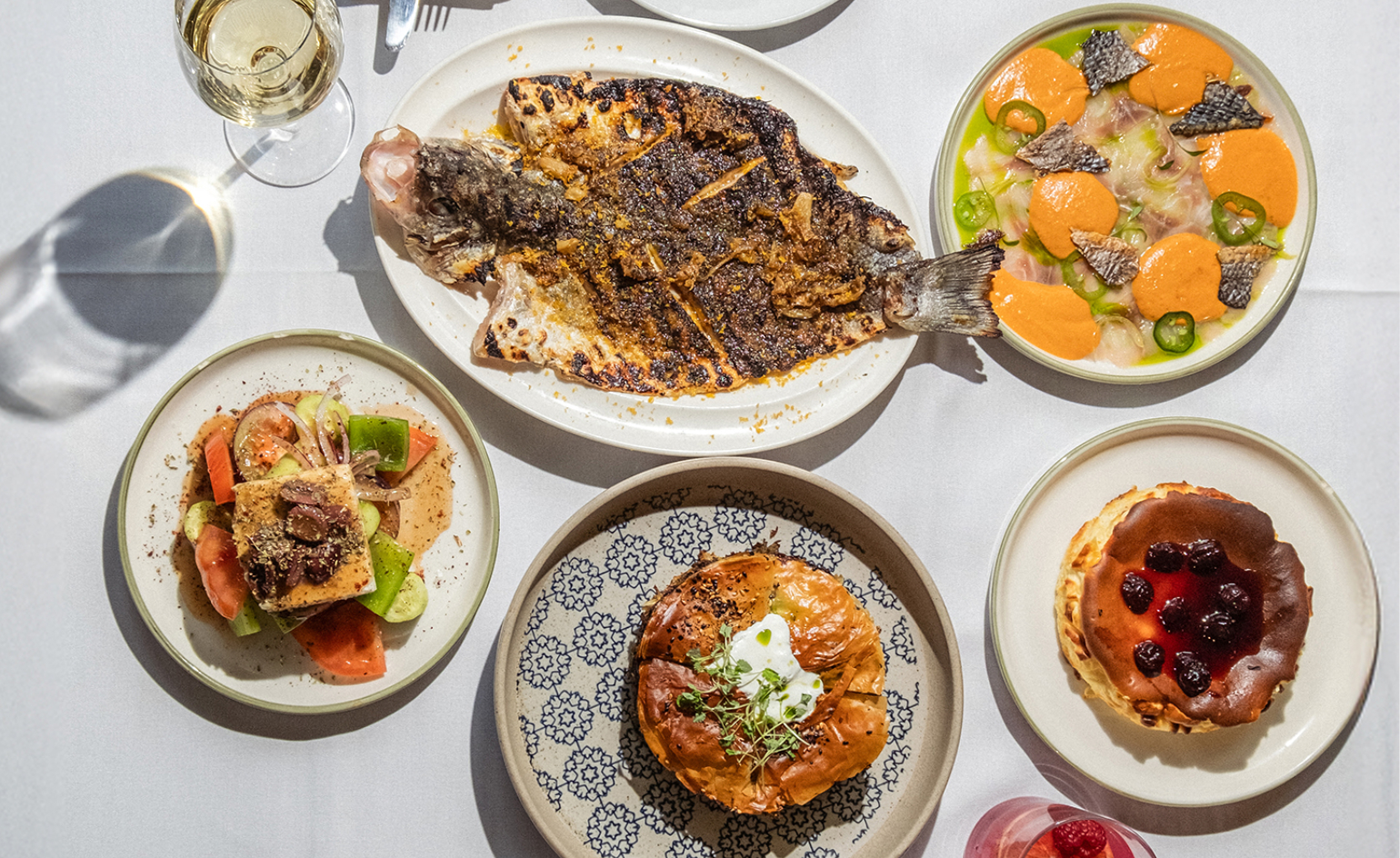 Dining at Pyrá feels like a Mediterranean kiss on both cheeks
Dining at Pyrá feels like a Mediterranean kiss on both cheeksDesigned by House of Dré, this Lonsdale Road addition dishes up an enticing fusion of Greek and Spanish cooking
By Sofia de la Cruz
-
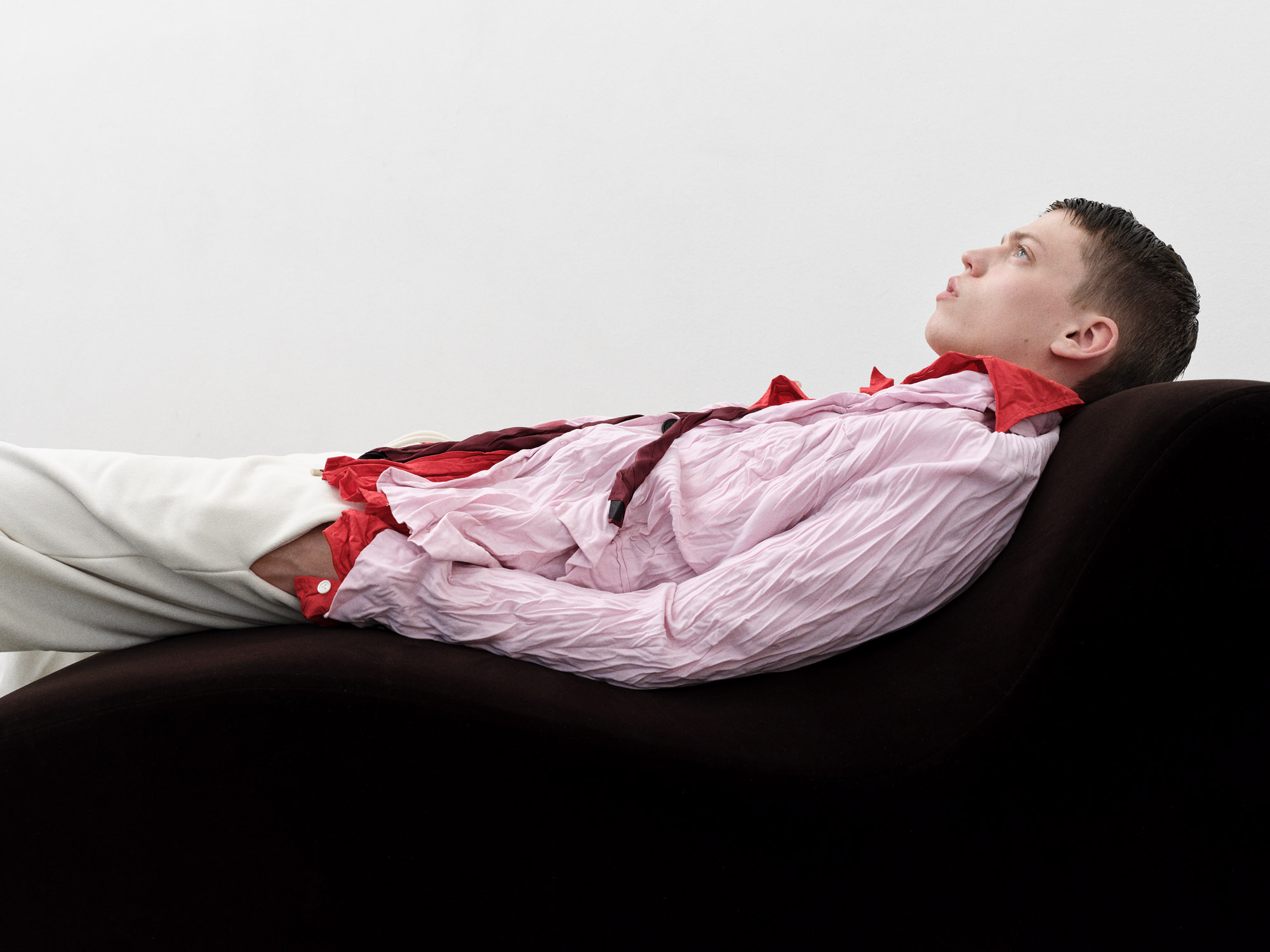 Creased, crumpled: S/S 2025 menswear is about clothes that have ‘lived a life’
Creased, crumpled: S/S 2025 menswear is about clothes that have ‘lived a life’The S/S 2025 menswear collections see designers embrace the creased and the crumpled, conjuring a mood of laidback languor that ran through the season – captured here by photographer Steve Harnacke and stylist Nicola Neri for Wallpaper*
By Jack Moss
-
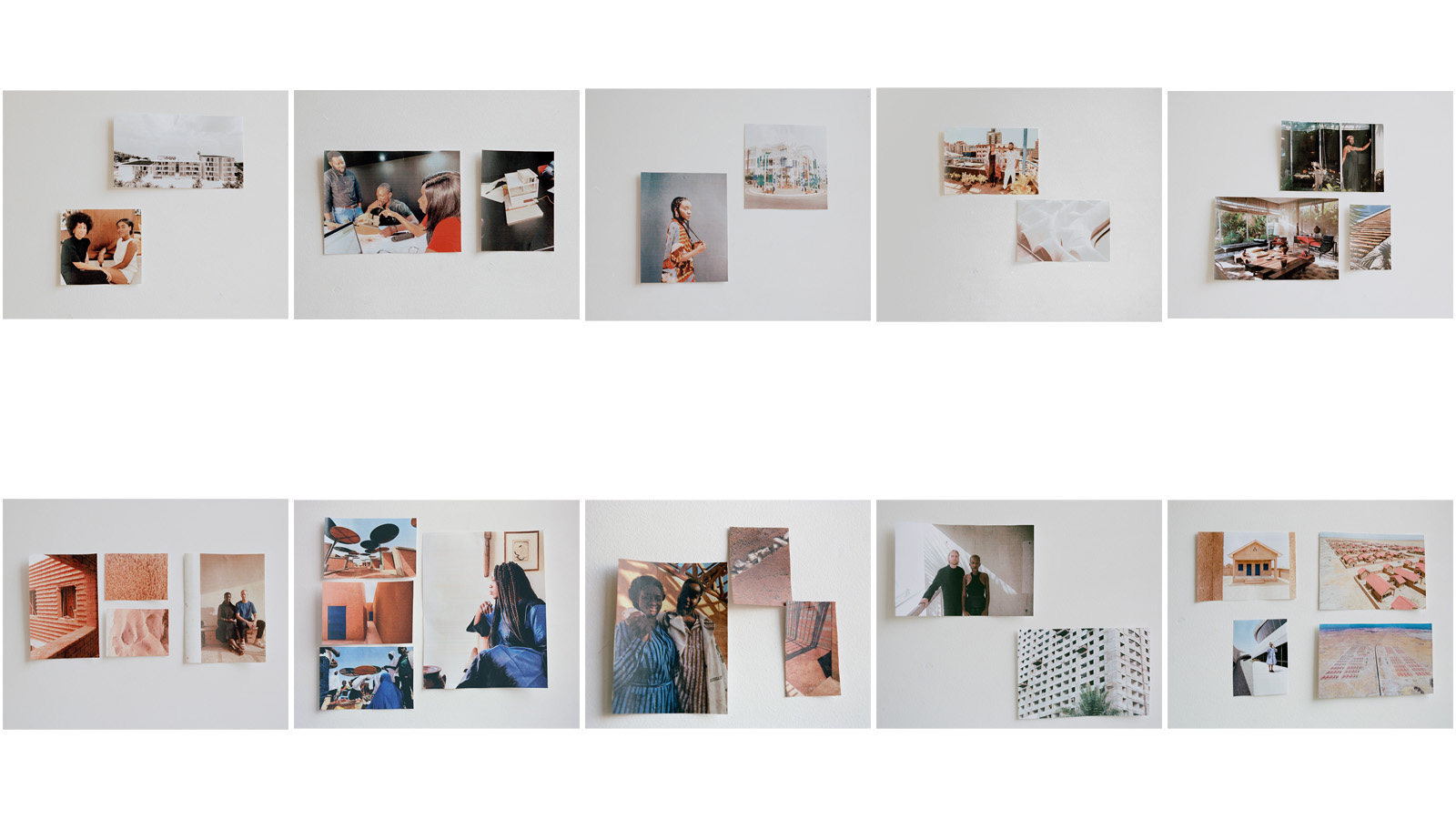 The 10 emerging West African architects changing the world
The 10 emerging West African architects changing the worldWe found the most exciting emerging West African architects and spatial designers; here are the top ten studios from the region revolutionising the spatial design field
By Ellie Stathaki
-
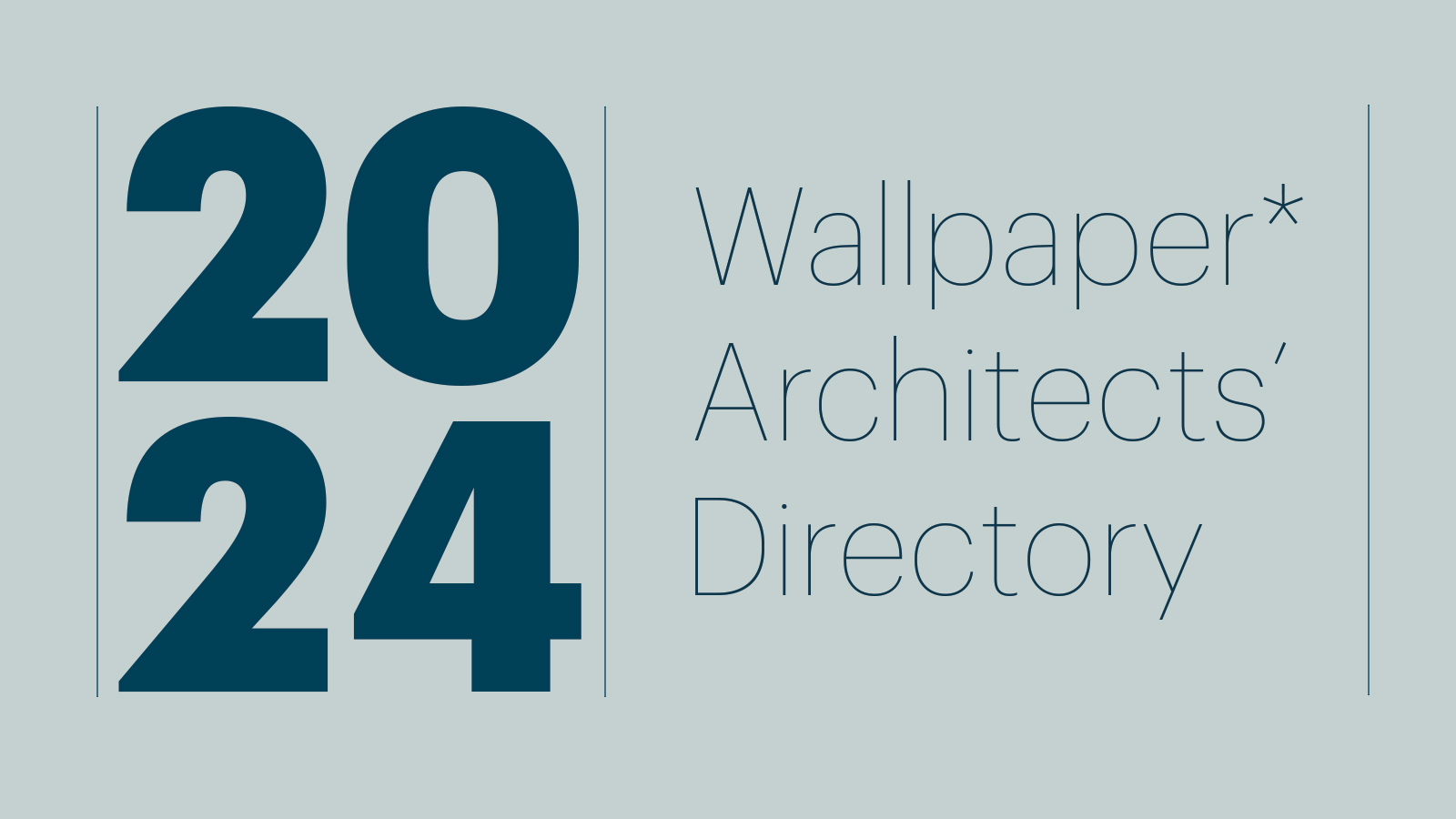 Wallpaper* Architects’ Directory 2024: meet the practices
Wallpaper* Architects’ Directory 2024: meet the practicesIn the Wallpaper* Architects Directory 2024, our latest guide to exciting, emerging practices from around the world, 20 young studios show off their projects and passion
By Ellie Stathaki
-
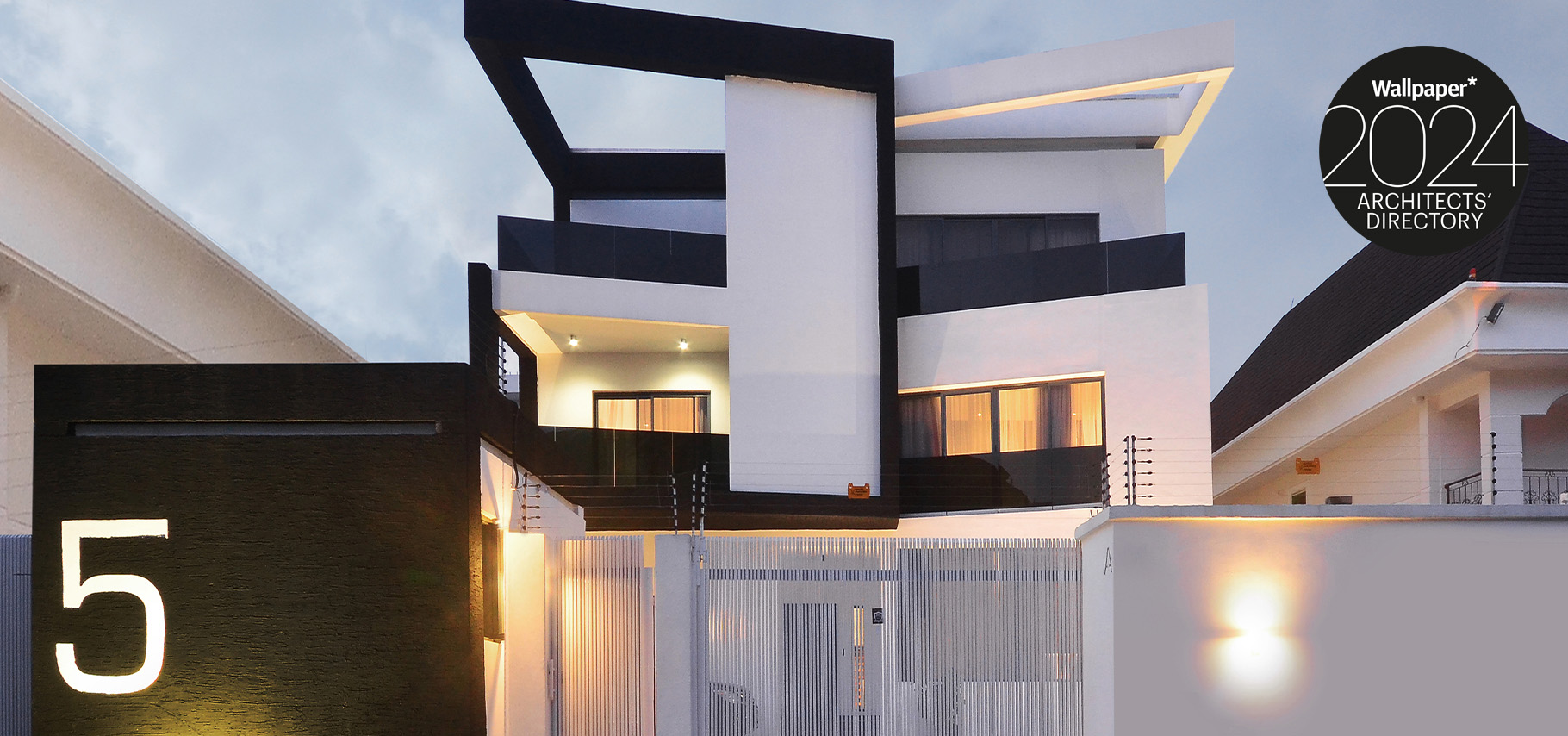 Nigerian architects SI.SA draw on 'simplicity, clarity, and unity'
Nigerian architects SI.SA draw on 'simplicity, clarity, and unity'SI.SA, a young Nigerian practice, is featured in the Wallpaper* Architects’ Directory 2024; tour its Scissor House in Ikoyi, an elegant solution to a constrained plot
By Shawn Adams
-
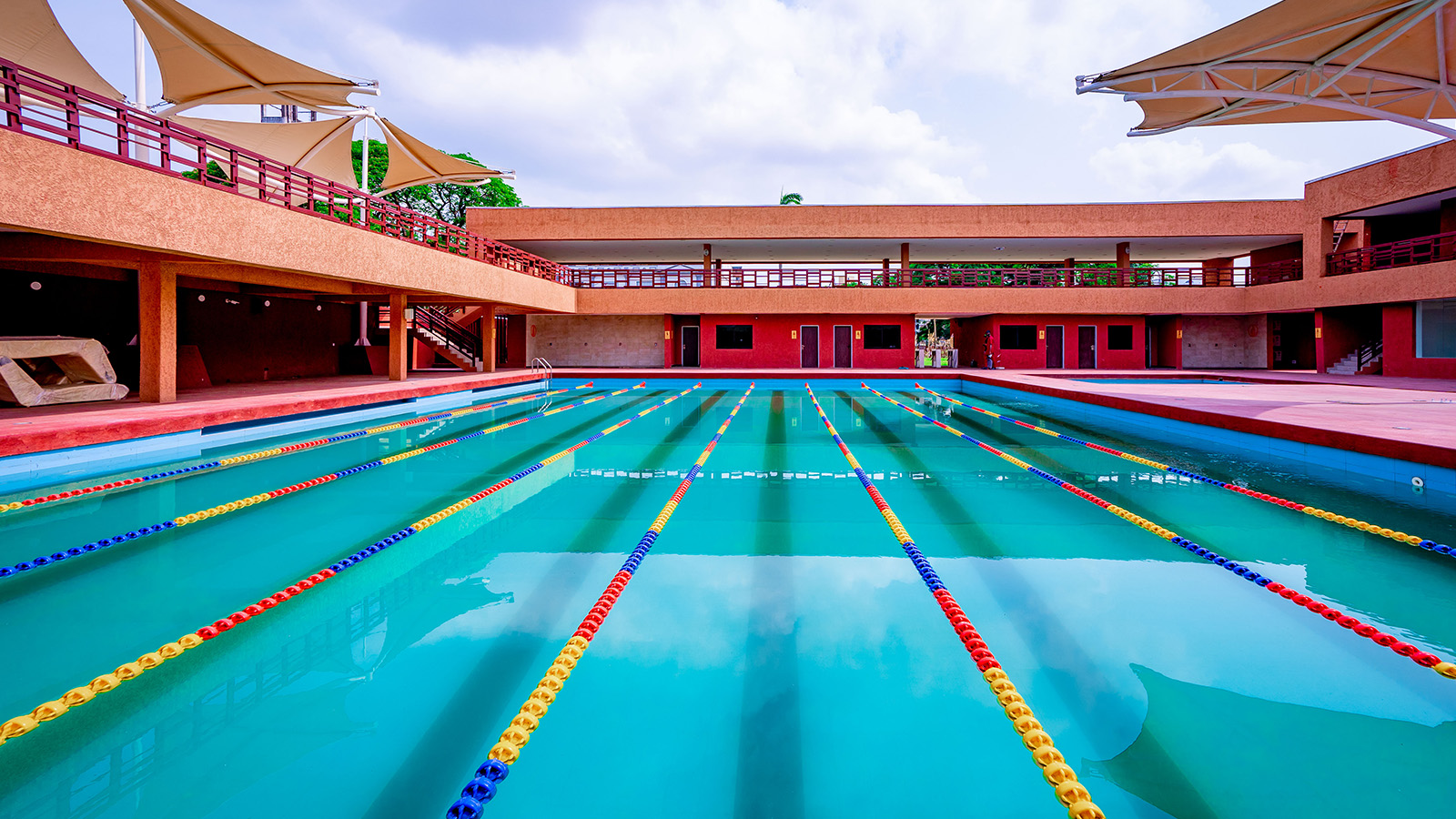 The John Randle Centre ‘rises from the earth in a nod to Yoruba spirituality’
The John Randle Centre ‘rises from the earth in a nod to Yoruba spirituality’The John Randle Centre for Yoruba Culture and History is an urban regeneration project at the heart of Lagos Island, designed by Studio Imagine Simply Architecture
By Shawn Adams
-
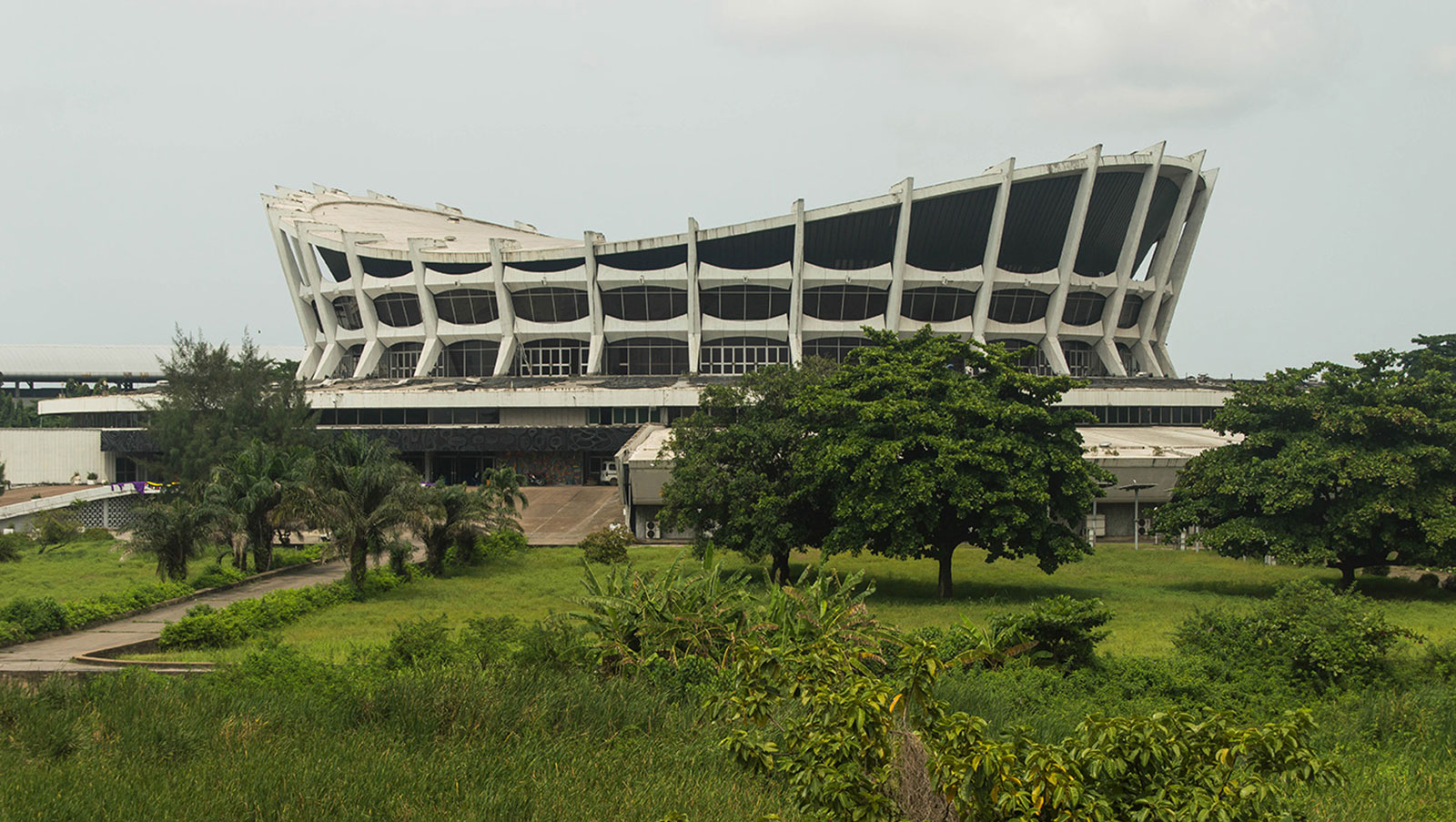 Afrobeats and modernism: how the concrete ‘ruins’ of Lagos become a stage
Afrobeats and modernism: how the concrete ‘ruins’ of Lagos become a stageWe explore the relationship between Afrobeats and modernism in Lagos, as the Nigerian capital’s concrete structures become a stage for the music genre
By Olorunfemi Adewuyi
-
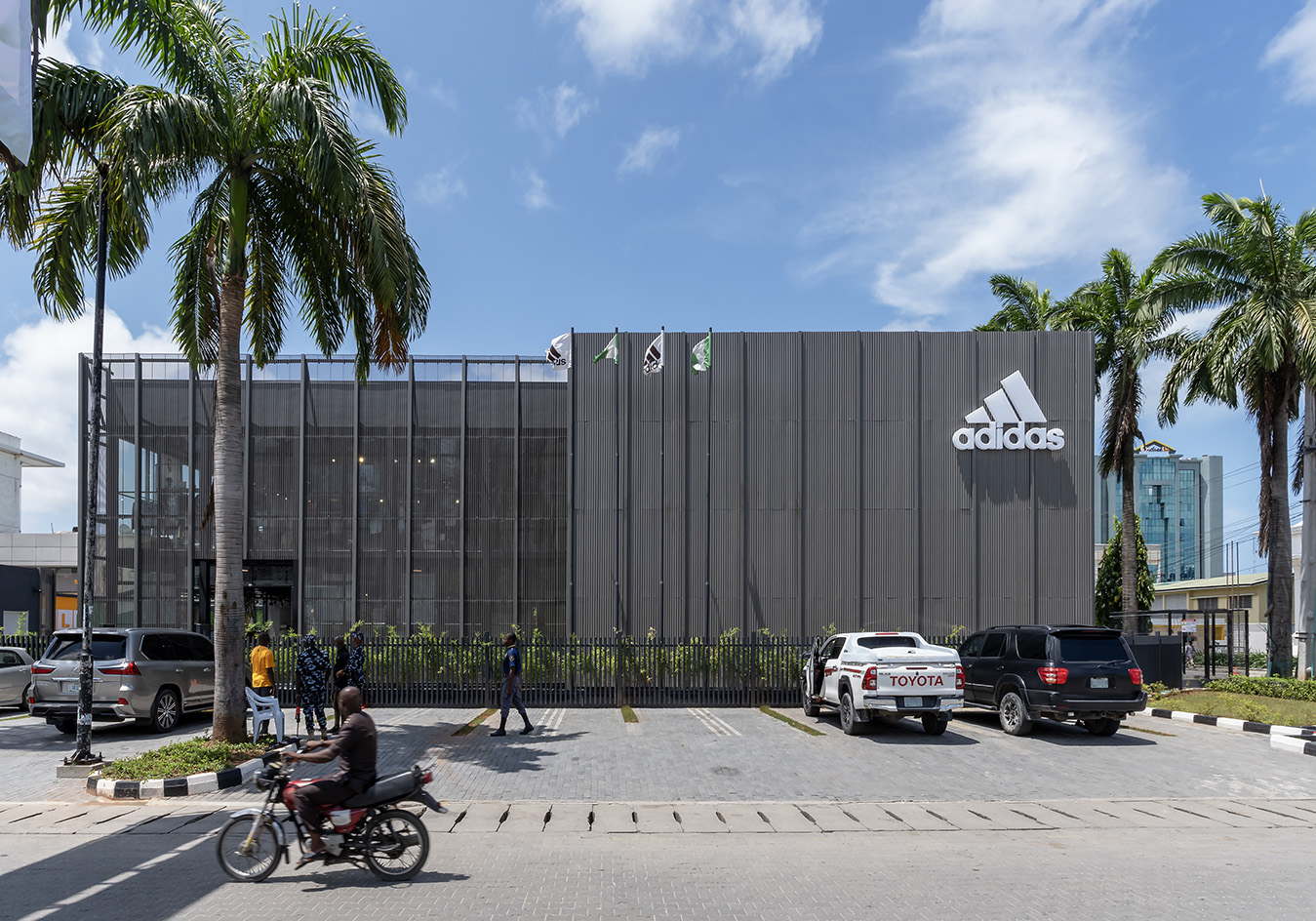 Adidas Lagos champions the city’s ‘resilient, adaptable and go-getter resolve’
Adidas Lagos champions the city’s ‘resilient, adaptable and go-getter resolve’Adidas Lagos by Tosin Oshinowo opens its smart retrofit of a 1970s building
By Ellie Stathaki
-
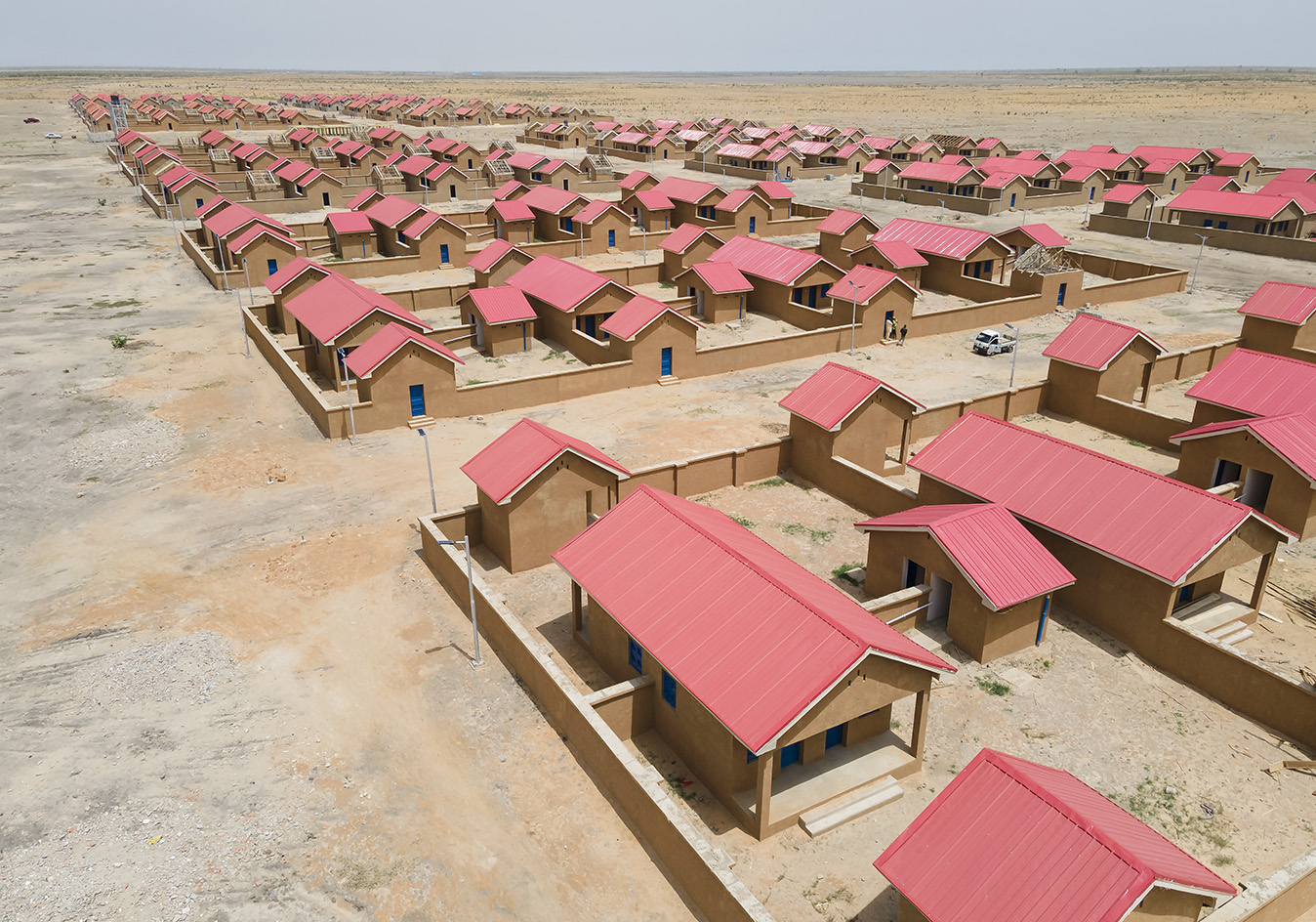 Tosin Oshinowo’s cmDesign Atelier is a cultural powerhouse
Tosin Oshinowo’s cmDesign Atelier is a cultural powerhousecmDesign Atelier from Nigeria is part of our series of profiles of architects, spatial designers and builders shaping West Africa's architectural future
By Ellie Stathaki
-
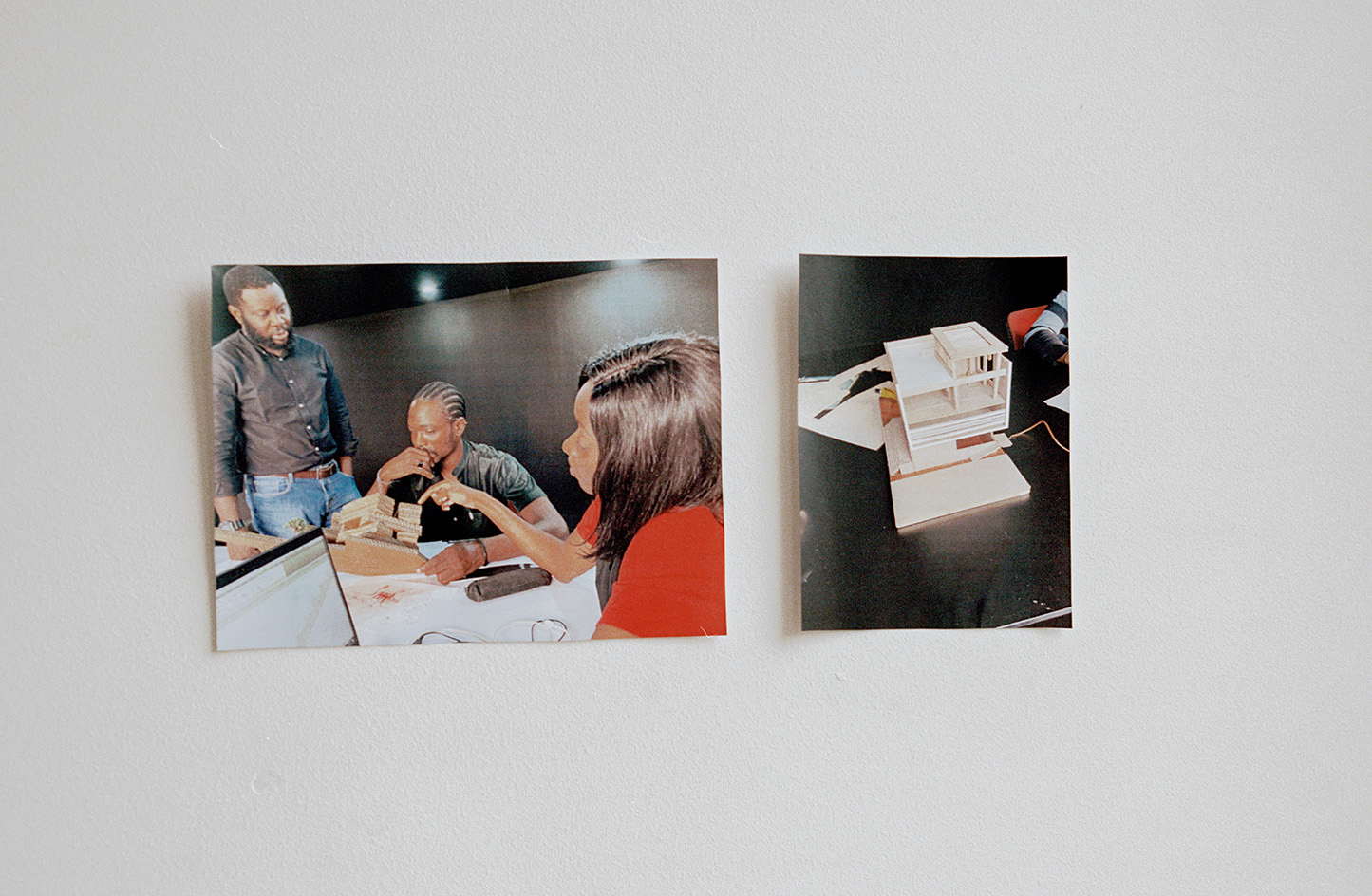 HTL Africa imagines architecture as an ‘object of performance’
HTL Africa imagines architecture as an ‘object of performance’HTL from Nigeria is next up in our series of profiles of architects, spatial designers and builders shaping West Africa’s architectural future
By Ijeoma Ndukwe